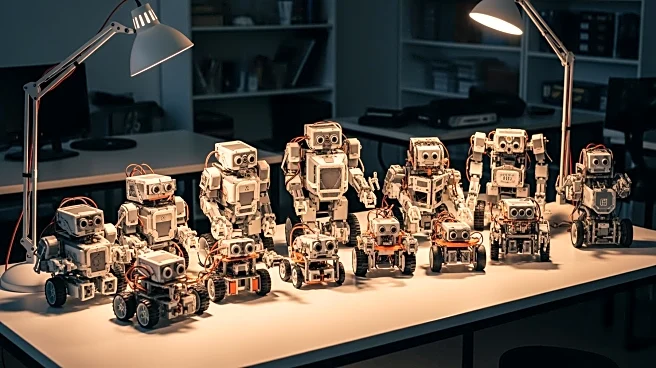What's Happening?
Professor Carlotta Berry, an educator at Rose-Hulman Institute of Technology, is pioneering efforts to make robotics education more inclusive through the development of open-source, 3D-printed robots.
Berry's initiative aims to overcome the economic and demographic exclusivity traditionally associated with robotics education. Her work is particularly focused on supporting women and people of color in STEM fields. Berry's approach involves hands-on learning experiences, allowing students to interact directly with robots, which contrasts with her own educational experiences where such interaction was limited. Her efforts extend beyond the classroom, as she actively engages with communities through public events and social media to promote STEM education.
Why It's Important?
Berry's work addresses significant gaps in STEM education, particularly for underrepresented groups. By making robotics more accessible, she is helping to diversify the field, which is crucial for fostering innovation and ensuring that technological advancements reflect a wide range of perspectives. Her efforts could lead to increased participation of women and minorities in engineering, potentially transforming the demographic landscape of the industry. This inclusivity is vital for addressing complex global challenges, as diverse teams are often more effective in problem-solving and innovation.
What's Next?
Berry plans to continue expanding her outreach efforts, bringing robotics education to more communities and further developing her open-source robotics projects. Her future initiatives may include more extensive collaborations with educational institutions and community organizations to broaden the impact of her work. Additionally, Berry's ongoing engagement with social media and public events will likely continue to raise awareness and inspire future generations to pursue careers in STEM.
Beyond the Headlines
Berry's work highlights the broader cultural and educational shifts needed to make STEM fields more inclusive. Her efforts underscore the importance of representation and access in education, which can have long-term impacts on societal equity and technological development. By challenging traditional educational models, Berry is contributing to a more equitable and innovative future.










